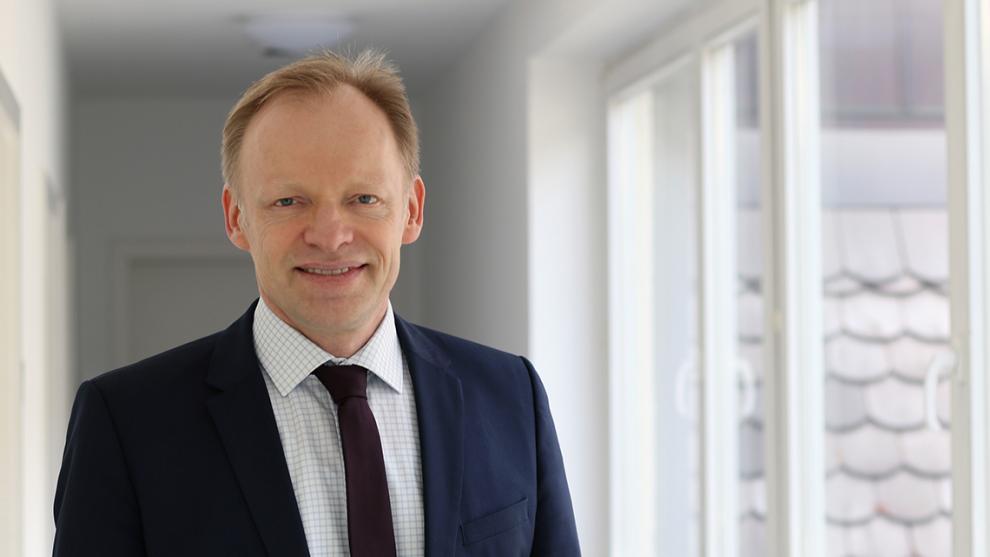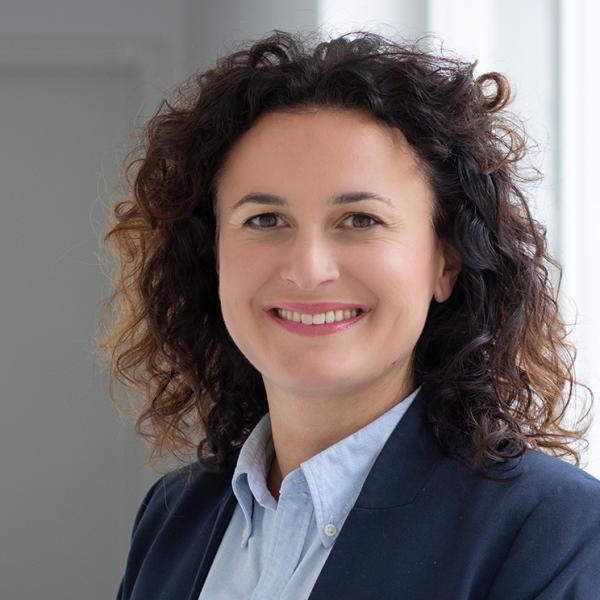ifo Media Center
The ifo Institute invites you to participate in the discussion of interesting economic topics via the Internet. In our ifo Media Center a whole series of remarkable events are available and can be viewed in full length. We also record selected speeches and presentations given by employees or at events and make them available in our Media Center.

ifo Institute: Germany Hardly Dependent on Non-European Countries for Medical Goods
In 2019, Germany depended very little on non-European countries for trade in medical goods. According to a study by the ifo Institute, the country achieved a trade surplus of EUR 37 billion in this area, with trade surpluses both in medicines and in medical equipment such as respirators or disinfectants.
Introduction of the Minimum Wage Had Negative Effects on Employment in Germany
Since its introduction in Germany, the minimum wage has triggered clearly measurable displacement effects. “In total, the minimum wage has led to a reduction of employment equivalent to 129,000 and 594,000 jobs,” write Marcel Thum, Director of the ifo Dresden branch, and coauthors in an essay for the ifo Schnelldienst.
ifo Institute Delighted to Receive Top Score from Leibniz Association
The ifo Institute welcomes the positive results of the Leibniz Association evaluation. “This is an acknowledgement of our achievements over the past few years. At the same time, it encourages us to further intensify our commitment to application-oriented economic research. The current crisis underlines the importance of scientifically founded advice for politics and society,” says ifo President Clemens Fuest in Munich. “My thanks go to all employees of the ifo Institute for their extraordinary commitment.”
ifo Institute: Euro Area Slides into Recession
Over the next few months, the euro area will slide into recession. This is the forecast of the ifo Institute in Munich and KOF in Zurich in their Eurozone Economic Outlook (EZEO). Economic output is likely to have shrunk by 2.3 percent in the first quarter and will shrink by another 10.5 percent in the second quarter; for the third quarter of 2020, the researchers are forecasting growth of 8.7 percent. All figures are quarter over quarter.
Institut ifo : l'Allemagne est peu dépendante des pays extérieurs à l'Europe pour le commerce des produits médicaux
En 2019, l'Allemagne n'a guère été dépendante des pays extérieurs à l'Europe en matière de commerce des produits médicaux. Selon une étude de l'Institut ifo, le pays a dégagé un excédent commercial de 37 milliards d'euros dans ce domaine. L'excédent concerne aussi bien le commerce de médicaments que celui des équipements médicaux, respirateurs ou désinfectants, par exemple.
Institut ifo : la zone euro entre en récession
La zone euro connaîtra une récession dans les mois à venir. C'est ce que prévoient l'Institut ifo de Munich et le Centre de recherches conjoncturelles (KOF) de Zurich dans leur rapport conjoint « Perspectives économiques de la zone euro » (EZEO). La performance économique a sans doute connu une baisse de l'ordre de 2,3 % dès le premier trimestre et devrait même se réduire de 10,5 % au cours du deuxième trimestre. Pour le troisième trimestre 2020, les chercheurs prévoient une croissance de 8,7 %, toujours par rapport au trimestre précédent.
L'économie en état de choc – la politique financière vole à sa rescousse
La pandémie du Covid-19 a déclenché une grave récession en Allemagne. Cette année, la performance économique du pays se contractera de 4,2 %. C'est ce qu'annoncent les instituts de recherche économique les plus représentatifs d'Allemagne dans leur rapport de printemps. Pour l'année prochaine, les auteurs du rapport prévoient une reprise et une croissance de 5,8 %.
Economy in Shock – Fiscal Policy to Counteract
The coronavirus pandemic is triggering a severe recession in Germany. Economic output will shrink by 4.2 percent this year. This is what the leading economics research institutes expect in their spring report. For next year, they are forecasting a recovery and growth of 5.8 percent.
ifo Institute: German Industrial Production Set to Plummet
German industry expects a massive decline over the coming three months. The ifo index for production expectations took a dive in March, from plus 2.0 to minus 20.8 points. This is the most drastic slump since the survey began in 1991. During the global financial crisis of 2008, the index fell by 13.3 points in November. “We are assuming that this development is still somewhat underestimated, as most of the answers were received by mid-March,” says Klaus Wohlrabe, Head of Surveys at the ifo Institute.
Institut ifo : Sombres perspectives pour l'industrie automobile allemande
La crise du Covid-19 entraîne une nette détérioration des perspectives pour le secteur allemand de l'automobile. C'est ce qui ressort de la toute dernière enquête de l'Institut ifo. Les prévisions commerciales pour les mois à venir se sont affaissées, chutant de – 19,7 points en février à – 33,7 points en mars. L'indice de la demande dans ce secteur a régressé de − 13,8 points en février à − 30,6 points en mars. Les attentes en matière d'exportations se sont effondrées, passant de − 17,3 points en février à − 42,7 points en mars. C'est le niveau le plus bas depuis le mois de mars 2009.
ifo Institute: Gloomy Outlook for the German Automotive Industry
Prospects for the German automotive industry have deteriorated significantly as a result of the coronavirus crisis. This is the result of the latest survey conducted by the ifo Institute. Business expectations for the coming months plummeted from minus 19.7 points in February to minus 33.7 points in March. The industry’s demand index sank to minus 30.6 points, having been at minus 13.8 points in February. Export expectations took a nosedive from minus 17.3 points in February to minus 42.7 points – its lowest level since March 2009.
Expert Group Advocates a Step-by-step Plan for after the Shutdown
An interdisciplinary group of renowned scientists is now calling for the current restrictions in society and the economy to be gradually eased, while ensuring medical care for the entire population. In their position paper, the researchers led by ifo President Clemens Fuest and Martin Lohse, president of the Society of German Natural Scientists and Physicians (GDNÄ), outline ways to achieve this goal.
Institut ifo : les arrêts de production dus au Covid-19 coûteront des milliards d'euros aux pays européens
La lutte contre le coronavirus entraînera des arrêts de production, qui coûteront plusieurs centaines de milliards d'euros aux pays d'Europe. Ce constat est le résultat de récents calculs réalisés par l'Institut ifo. « Des facteurs non seulement médicaux mais aussi économiques plaident en faveur d'investissements massifs dans la protection sanitaire. Nous pourrons ainsi enrayer l'épidémie – et créer en même temps les conditions pour réouvrir ensuite progressivement les établissements scolaires et les entreprises », indique Clemens Fuest, président de l'Institut ifo. Les calculs ont porté sur la France, la Suisse, l'Italie, l'Espagne, l'Autriche, et le Royaume-Uni.
ifo Institute: Economists Applaud Government Aid for Fighting the Coronavirus Crisis
Economists at German universities are in favor of the German government’s aid measures. These are the results of the ifo Economists Panel, a joint undertaking with FAZ, in which 155 professors took part. Two-thirds of the respondents considered the supplementary budget of EUR 156 billion to be appropriate. “At this point it’s becoming clear how important it was to have rejected calls for greater debt in recent years,” says Niklas Potrafke, Director of the ifo Center for Public Finance and Political Economy. “Now we really are in an emergency situation and have the means to respond appropriately.”
ifo Institute: Coronavirus Will Cost Europe Hundreds of Billions of Euros in Production Losses
The fight against the coronavirus will lead to production losses, which will cost European countries hundreds of billions of euros. This is the result of the ifo Institute’s recent calculations. “In addition to medical reasons, there are also economic reasons for investing massive amounts in health protection. This would help contain the epidemic and at the same time allow us to then gradually lift the closures of schools and businesses,” says ifo President Clemens Fuest. In its calculations, the ifo Institute looked at the United Kingdom, Italy, Spain, France, Austria and Switzerland.
ifo Business Climate Eastern Germany: Massive Collapse (March 2020)
In March, the ifo business climate for eastern Germany cooled off heavily. The ifo Business Climate Index for the entire regional economy fell from 99.4 to 89.7 points, in line with the figure for the whole of Germany. Both the assessments of the current situation and the business expectations of the eastern German respondents surveyed saw a steep drop. Overall, the outlook declined even more strongly than the assessments of current business.
Institut ifo : Le Covid-19 coûte des milliards d'euros en pertes de revenus à l'économie bavaroise
Le Covid-19 pourrait coûter plusieurs dizaines de milliards d'euros à l'économie bavaroise. Ce constat est le résultat de calculs réalisés par l'Institut ifo. « Une fermeture d'entreprises pendant seulement deux mois entraînerait des coûts de 49 à 94 milliards d'euros suivant le scénario considéré. Ces coûts réduiraient la croissance annuelle de 7,7 à 15,0 points de pourcentage ; au bout de trois mois, ces coûts atteindraient déjà 68 à 138 milliards d'euros, soit 10,8 à 22,1 points en perte de croissance. La Bavière est ainsi légèrement plus menacée que le reste de l'Allemagne », indique Clemens Fuest, président de l'Institut ifo.
ifo Institute: Coronavirus Costs Bavaria’s Economy Billions in Losses
The coronavirus could cost the Bavarian economy several billion euros. This is the result of the ifo Institute’s recent calculations. “If companies are closed down for a period of two months, the costs already go as high as EUR 49 to 94 billion, depending on the assumptions made. That would lower annual growth by between 7.7 and 15.0 percentage points; if the closures go on for three months, the costs go up to EUR 68 to 138 billion, which represents a loss of growth of 10.8 to 22.1 percentage points. This means that Bavaria is under a somewhat greater threat than the rest of Germany,” says ifo President Clemens Fuest.
Institut ifo : augmentation massive de l'activité partielle dans l'industrie allemande
L'industrie allemande s'apprête à augmenter massivement le recours à l'activité partielle. En effet, 25,6 % des entreprises envisagent d'adopter cette mesure au cours des trois prochains mois. C'est le taux le plus élevé depuis 2010. Il y a trois mois, il n'était que de 15,3 %. C'est ce qui ressort de la toute dernière enquête de l'Institut ifo. Secteurs clés de l'industrie allemande, l'automobile (41 %), la construction mécanique (33 %) et l'industrie électrique (32 %) sont particulièrement affectés par ce phénomène.
ifo Institute: Short-Time Work in German Industry Set to Rise Dramatically
Short-time work in German industry is poised to skyrocket, with 25.6 percent of all companies expecting to deploy it in the coming three months. This marks the highest level since the start of 2010. Three months ago, it was just 15.3 percent. This is the result of the latest ifo Business Climate survey. Three key industries will be impacted to an above-average extent: automotive (41 percent), mechanical engineering (33 percent), and electrical engineering (32 percent).




